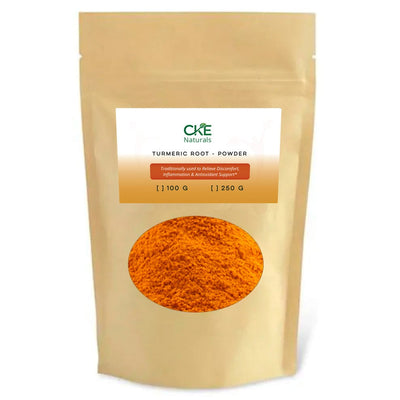Turmeric Root Benefits: Uses for Turmeric Root
For countless centuries, the turmeric root, a member of the ginger family, has been revered for its culinary versatility and myriad health benefits. Originating from South Asia, it has found its way into kitchens and medicinal practices worldwide.
This comprehensive guide will explore turmeric root benefits, presenting an in-depth analysis of its uses and benefits.
1. Turmeric: A Nature-Bestowed Solution to Chronic Inflammation
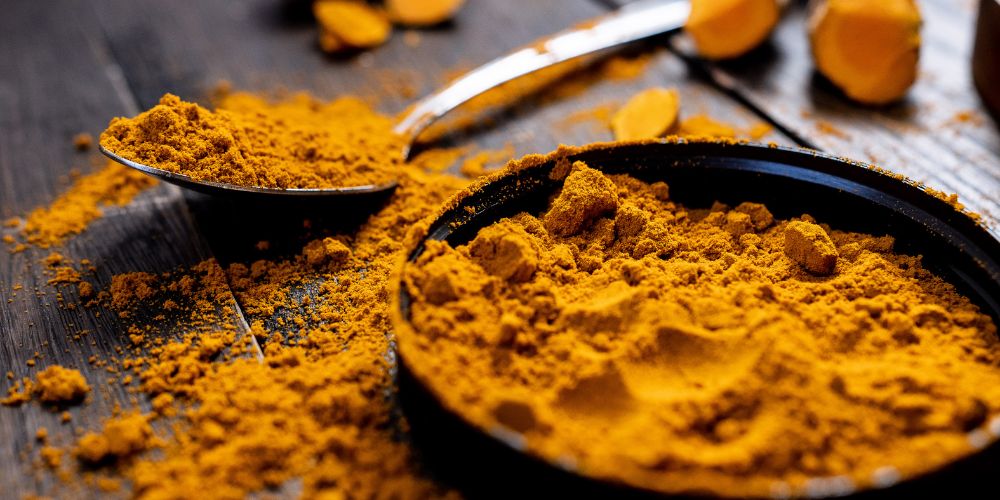
Inflammation is a fundamental biological response for healing and protection against infections. However, when it takes on a chronic form, it can become a silent enemy, contributing to various health complications. Chronic inflammation has been linked to conditions like heart disease, diabetes, and even cancer. Fortunately, nature has bestowed us with a potent ally in the form of turmeric, specifically its active compound, curcumin.
Curcumin found abundantly in turmeric, has emerged as a natural remedy to combat chronic inflammation and pain relief. Numerous studies have highlighted curcumin's remarkable efficacy, often rivaling that of pharmaceutical drugs, without the concerning side effects. Using turmeric as an anti inflammatory agent is the best choice.
One of the critical challenges with curcumin is its bioavailability, meaning the body can absorb and utilize it effectively. Experts recommend adding a pinch of black pepper to turmeric-containing dishes or supplements to maximize its benefits. Black pepper contains piperine, a compound that enhances curcumin absorption, ensuring that your body reaps the maximum rewards of its anti-inflammatory properties.
2. The Dual Role in Antioxidant Defense
Oxidative stress, caused by the harmful actions of free radicals in the body, plays a pivotal role in aging and the development of various diseases. With its potent antioxidant properties, turmeric root extract offers a dual defense mechanism against oxidative stress.
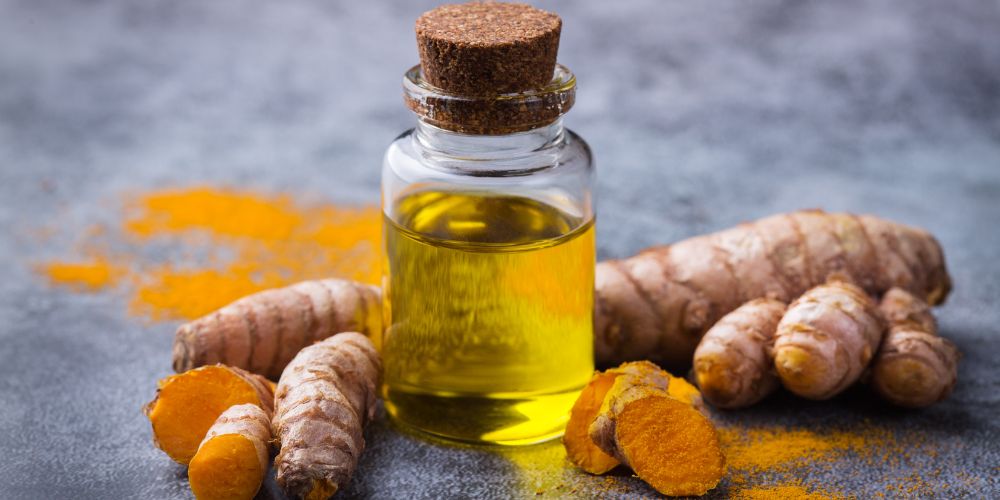
Turmeric not only acts as a direct scavenger of free radicals; it also stimulates the body's antioxidant enzymes. This unique feature fortifies our natural defenses, making it a valuable asset in preventing and mitigating diseases associated with oxidative damage.
By neutralizing free radicals and bolstering our antioxidant defenses, turmeric's role in promoting overall health becomes evident. It plays a crucial part in preventing age-related conditions and diseases such as Alzheimer's and some forms of cancer. It's great for immune system support.
3. The Potential to Revolutionize Brain Health

Recent advancements in neuroscience have challenged the long-held belief that neurons cannot regenerate after childhood. Brain-derived neurotrophic Factor (BDNF), a key player in this process, promotes the formation and connection of new neurons. Elevated levels of BDNF, driven by turmeric curcumin, offer promising potential for improved brain function and the ability to counteract degenerative processes.
The implications of enhanced brain health are profound. Regular consumption of turmeric might play a significant role in staving off cognitive decline, supporting memory retention, and ultimately improving overall brain health. This potential extends to the aging population and individuals of all ages seeking to optimize their cognitive abilities.
Incorporating turmeric into your diet or taking it as a supplement could be a proactive step towards nurturing your brain's vitality, promoting mental acuity, and potentially warding off the effects of cognitive aging.
4. The Golden Path in the Fight Against Alzheimer's Disease
Alzheimer's disease is a profoundly debilitating condition that currently lacks a definitive cure. However, turmeric offers a glimmer of hope in the ongoing battle against this neurodegenerative disorder. Curcumin, the active compound in turmeric, possesses a unique capability to traverse the blood-brain barrier, gaining direct access to the brain's inner sanctum.
Once inside the brain, curcumin targets inflammation and oxidative damage, two hallmark features of Alzheimer's disease. Inflammation within the brain can exacerbate neuronal damage and cognitive decline, making curcumin's anti-inflammatory properties particularly relevant.
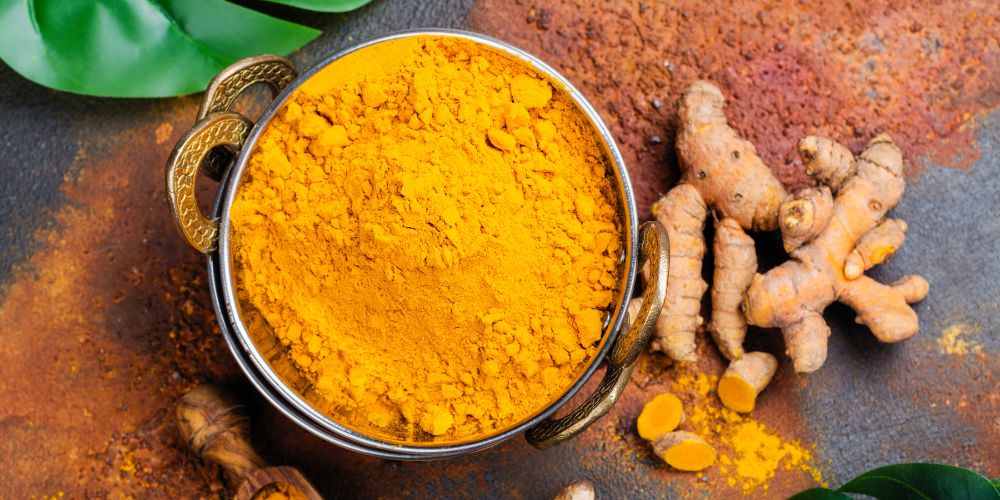
Furthermore, curcumin's role in aiding the clearance of amyloid plaques is paramount. These abnormal protein aggregates are a central player in the progression of Alzheimer's disease, contributing to neuronal dysfunction and loss. Curcumin's potential to mitigate the accumulation of these plaques signifies a vital aspect of its therapeutic value in Alzheimer's management.
While turmeric and curcumin alone may not serve as a panacea for Alzheimer's, their inclusion in holistic treatment strategies and other therapeutic approaches holds promise in managing and perhaps even reversing some of the condition's effects. Research in this area continues to advance, offering hope for those affected by Alzheimer's and their families.
5. The Natural Respite for Arthritis Sufferers
Arthritis, a condition characterized by inflamed joints, can be a source of significant pain and limitation in daily activities. Turmeric's powerful anti-inflammatory properties provide a natural and accessible remedy for arthritis-related discomfort. It is one of the miraculous health benefits of turmeric.
Both anecdotal reports and scientific studies have suggested the effectiveness of turmeric in alleviating joint pain and swelling. In some instances, it has even surpassed the efficacy of conventional treatments. The advantage of turmeric lies in its holistic approach to addressing the underlying inflammation without the side effects associated with specific pharmaceutical options.
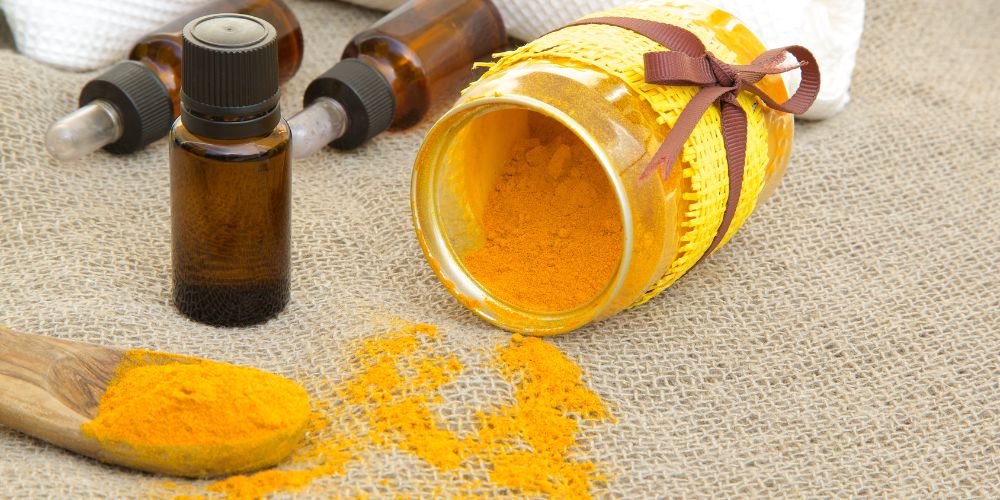
For people living with arthritis, incorporating turmeric into their daily routines can be transformative. Whether through turmeric supplements or soothing warm turmeric milk consumed before bedtime, this spice offers a natural respite that can significantly improve the quality of life for those dealing with challenges related to joint health.
By harnessing the anti-inflammatory power of turmeric, individuals with arthritis can find relief and regain a sense of freedom in their daily activities, all without relying solely on traditional medications.
6. A Beacon for Heart Health
Heart disease is a leading global cause of mortality, with multifaceted reasons. Turmeric's curcumin intervenes at several critical levels, offering a multifaceted approach to promoting cardiovascular well-being.
One of curcumin's significant contributions to heart health is its impact on endothelial function. The endothelium, a thin layer of cells lining the blood vessels, is vital in regulating blood pressure and clotting. Dysfunction in the endothelium is a precursor to several cardiovascular issues. Curcumin's ability to enhance endothelial function can help maintain healthy blood vessels, contributing to cardiovascular health.
Furthermore, curcumin's antioxidant and anti-inflammatory properties are valuable assets in supporting heart health. By neutralizing free radicals and mitigating chronic inflammation, it helps reduce the risk factors associated with heart disease, including atherosclerosis (hardening of the arteries) and hypertension (high blood pressure).
Incorporating turmeric into a heart-healthy diet can be a proactive step toward cardiovascular wellness. Its inclusion in various dishes enhances flavor and is a powerful ally in maintaining a strong and resilient heart.
Turmeric's multifaceted benefits continue to unfold, highlighting its potential to be a guardian of heart health and a partner in pursuing a long and vibrant life.
7. Turmeric's Tryst with Cancer Prevention and Treatment
Cancer remains one of the most complex and challenging health conditions, with numerous forms and intricacies. In this ongoing battle, curcumin, the active component in turmeric, has demonstrated potential in cancer prevention and treatment.
Studies have shown that curcumin can halt the growth of cancer cells and even induce the death of cancerous cells in some instances. Its multifaceted approach to cancer includes inhibiting the proliferation of cancer cells, suppressing angiogenesis (the formation of blood vessels that feed tumors), and modulating immune responses to target cancerous growth.
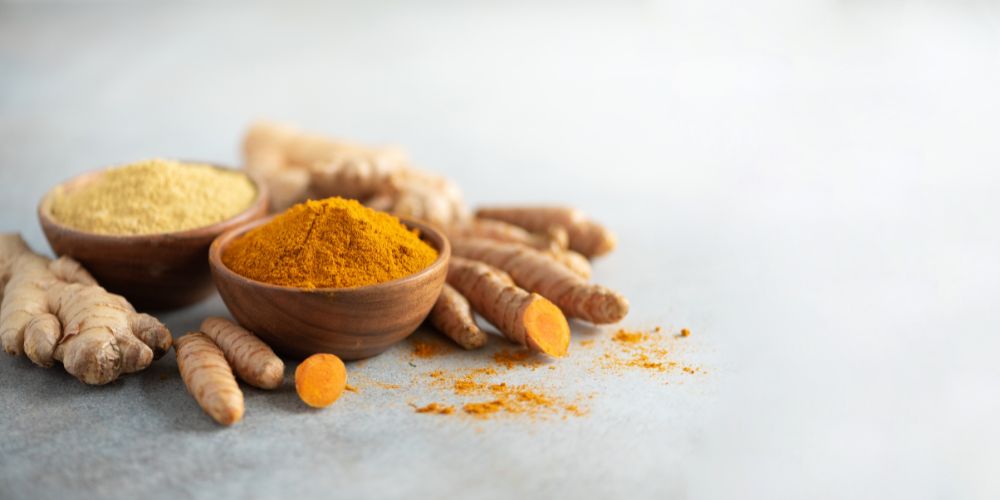
While it is essential to acknowledge that curcumin is not a standalone cure for cancer, its role in a holistic cancer prevention and treatment strategy cannot be underestimated. Incorporating turmeric into one's diet and lifestyle may serve as an additional layer of defense against the development and progression of cancer.
Research in this field continues to evolve, exploring curcumin's potential applications in different cancer types. It is a promising avenue of investigation that holds hope for those affected by this formidable disease.
8. An Uplifter of Spirits: Addressing Depression
The stresses and demands of modern life contribute to rising rates of Depression. With its ability to modulate neurotransmitters like serotonin and dopamine, turmeric emerges as a potential mood enhancer. While not intended as a replacement for established treatments, turmeric offers an adjunct natural therapy to help restore mental balance.
Serotonin and dopamine are neurotransmitters that play pivotal roles in regulating mood and emotions. Imbalances in these neurotransmitters are often associated with conditions like Depression. Curcumin's ability to influence these neurotransmitter systems presents a unique opportunity to address mood disorders naturally.
Incorporating turmeric into one's diet or supplement regimen may be particularly beneficial for individuals experiencing mild to moderate Depression. However, it is crucial to emphasize that individuals with severe Depression should seek professional medical guidance and not rely solely on natural remedies.
By offering a natural means of uplifting spirits, mood enhancement, and supporting emotional well-being, turmeric showcases its potential as a holistic wellness tool in mental health.
9. Ageing Gracefully with Turmeric's Aid
As we journey through life, aging is an inevitable process. With its vast antioxidants and anti-inflammatory properties, turmeric protects against age-induced damage.
Regular consumption of turmeric can help decelerate the visible signs of skin aging, promoting a youthful appearance—the antioxidants in turmeric combat free radicals, preventing them from causing premature skin aging and damage.
Additionally, turmeric's immune-boosting properties contribute to overall health, ensuring the body remains resilient against age-related diseases and conditions. It offers a natural and holistic approach to maintaining vitality and well-being as we navigate the golden years of life.
By incorporating turmeric into your daily routine, you can support your body's natural defenses against aging in terms of physical appearance and overall health. This can lead to a graceful and fulfilling journey through the later stages of life.
10. Radiant Skin with Turmeric's Midas Touch
From ancient beauty rituals to modern skincare regimes, turmeric has been a constant presence in the quest for radiant and youthful skin. Its anti-inflammatory properties soothe various skin conditions, while its antioxidants combat the signs of aging.
One of turmeric's most celebrated applications in skincare is its ability to address acne. The anti-inflammatory and antimicrobial properties of curcumin make it effective in reducing redness, swelling, and the growth of acne-causing bacteria.
Moreover, turmeric's antioxidant prowess fights against free radicals, preventing them from causing premature aging, fine lines, and wrinkles. This contributes to a glowing complexion and a more youthful appearance.
To harness the benefits of turmeric for radiant skin, consider incorporating it into homemade face masks or skincare products that contain turmeric extract. This natural approach to skincare is not only effective but also a testament to the enduring appeal of turmeric in enhancing beauty and well-being.
Incorporating turmeric into your skincare routine can be a rewarding step towards achieving and maintaining skin health, blending ancient wisdom with contemporary self-care practices.
11. Turmeric: A Guardian Against Diabetes
Diabetes, characterized by erratic blood sugar levels, is a widespread health concern with profound implications. Turmeric, particularly its active compound curcumin, has shown promise in addressing various aspects of diabetes management.
One of the key mechanisms through which turmeric benefits individuals with diabetes is optimizing insulin function. Insulin, a hormone the pancreas produces, is central in regulating blood sugar levels. Curcumin's ability to enhance insulin sensitivity can improve the body's response to insulin, potentially leading to more stable blood sugar levels.
Furthermore, turmeric's anti-inflammatory properties are valuable in countering the low-grade chronic inflammation often associated with diabetes. Chronic inflammation can exacerbate insulin resistance, making it a significant contributor to the progression of the disease. By mitigating inflammation, turmeric offers a holistic approach to diabetes management.
Incorporating turmeric into one's diet or taking it as a supplement can complement existing diabetes management strategies. However, individuals with diabetes must consult healthcare professionals to ensure that turmeric supplementation aligns with their treatment plan.
Turmeric's potential in supporting diabetes management underscores its versatility as a natural wellness tool, offering hope for individuals striving to maintain stable blood sugar levels and overall health.
FAQs:
Conclusion
Turmeric root's multifaceted benefits make it a golden elixir in the truest sense. While it continues to grace our dishes with flavor and color, its health implications are profound. Embracing turmeric is a step towards holistic health, bridging ancient wisdom with contemporary science. Incorporating this remarkable spice into your daily routine can pave the way for a healthier, more vibrant life.
So, why wait? Make turmeric your ally on the journey to optimal well-being. Buy the most organic turmeric root extract from CKE Naturals. Turmeric root benefits will transform your life for the better.


